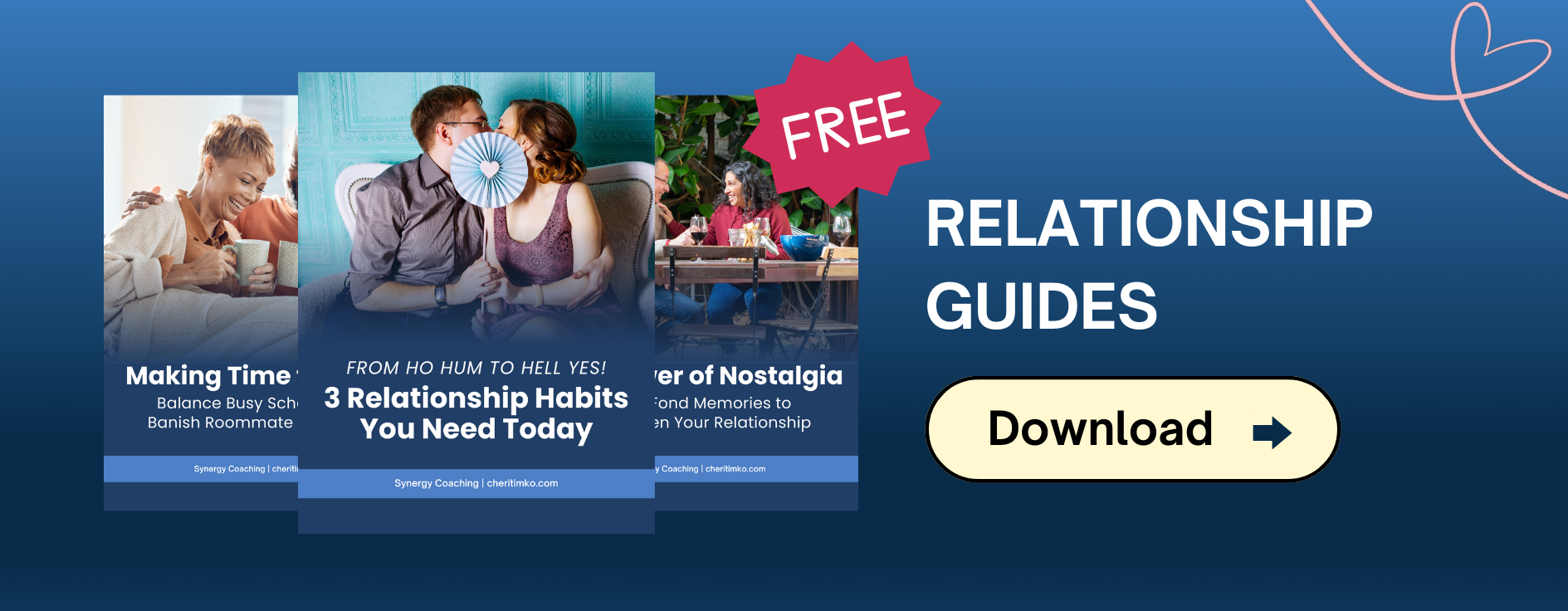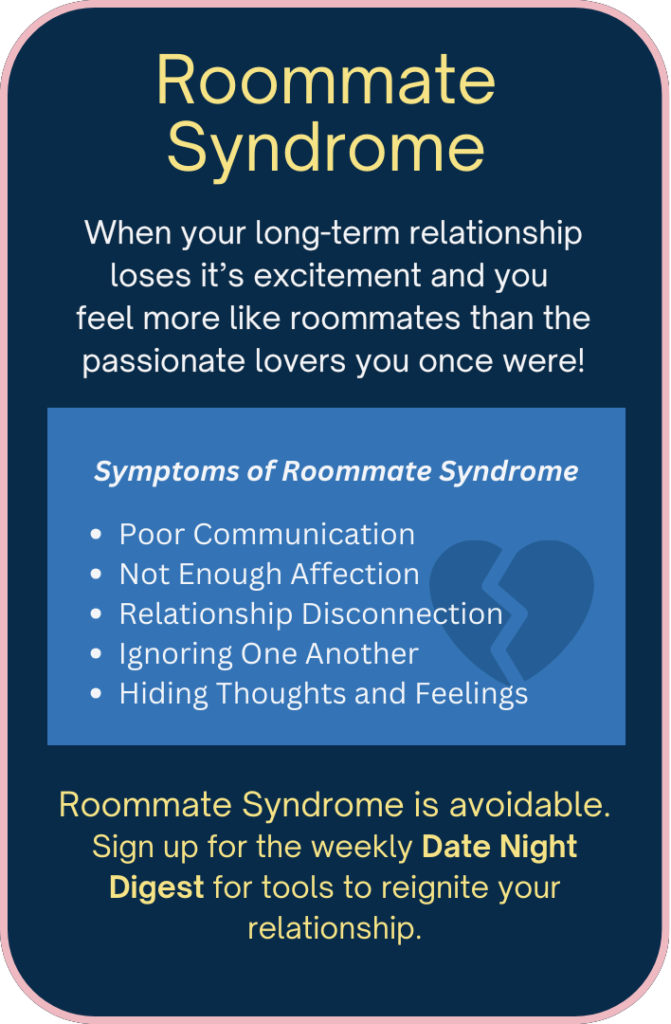- Don’t do that!
- I don’t like how that feels.
- You didn’t ___________.
- You never ___________.
- I can’t believe you think that’s ok.
- Stop it.
- Why can’t you ever _______.
Your brain is finetuned to see the thing that doesn’t belong. Once you see it, you want to communicate it to those around you and have them fix it. Your intention is to improve your life and your relationship. Otherwise, you would not bother to say anything.
In the moment, these things feel intensely urgent. It might even feel like the words will burst out of you. After all, your partner can’t read your mind so you have to tell them what’s bothering you, right? But what does it do to your relationship in the long run?

For your partner, your feedback feels like a string of corrections and criticism. They start to think everything they do is wrong. In fact, many partners conclude that they can never please you, so they stop trying. When this happens, you hear:
- I know, I’m always wrong.
- What did I do now?!?
- I’ll just stay out of your way.
- Why should I try? I’ll just mess it up.
- {Eye Roll}
Do any of these sound familiar? They are important for you to notice. Your partner isn’t just dismissing your concerns.
If your partner feels beat down with criticism, then you won’t get what you want. In fact, you will get the opposite of what you want: disconnection, bickering, and irritation.
Bad advice that adds to the problem:
1. Bite your tongue
I am not suggesting that you keep all these thoughts in your head. In fact, biting your tongue might be one of the worst things your can do for your relationship. You need to be able to talk about the things that are bothering you. If you don’t those problems will fester and lead to bigger problems.
2. Pretend to be cheerful
It’s easy to see through fake happiness and acceptance. Your partner will know that something is wrong, but they won’t be able to guess what it is. One of two things are going to happen:
- They will badger you to tell them what is really wrong. This will cause an argument—exactly what you were trying to avoid.
- They will make up the reason in their own mind. Be honest, how often do they guess correctly?!?
3. Stuff it down
It’s not enough to tell yourself that there is no problem. If you repeatedly do that, you will disempowering yourself or building up resentment. Your gut instincts and intuition are valid and important guides. Ignoring the problems can lead to physical symptoms, disengaging in the relationship, and explosive arguments when all the pent-up frustration pours out.
How do you shift to “yes?”
Your goal is to improve the relationship, not make things worse. There are several strategies that you can use to shift from “no” to “yes”. You want to find the ones or the combination of solutions that work best for you. Here are some to start with:
1. Increase the ratio
You can continue sharing “no” if you increase the number of times you say “yes.” This means looking for every opportunity to say yes or point out something that you like. This is deceptively hard. You need to retrain your brain to look for the good things that your spouse does and then tell them. However, you will see the rewards immediately when your partner lights up at your praise.

2. Choose the right time
Pick the right time to bring up issues. Right before bed or when one of you is rushing out for the day are some of the worst times to share a concern. Your partner is distracted by other things. Bring up issues when you have their attention. They will be more likely to hear you.
3. Shorten the feedback
Don’t overexplain the problem. When your partner gives you an irritated look, it is tempting to continue explaining. What do you want when you bring up a problem? You hope they will accept the feedback, apologize, and promise to avoid doing it again. How likely is that? Would you respond that way? When you continue explaining, your partner feels like you are piling it on. This is what leads to an argument.
4. Pick your battles
If you respond to everything as it happens, it’s harder to weed through which issues need attention and which are irritations in the moment. Especially if you are busy, it can be helpful to jot down the things that feel like problems to you. Review the list later to see which things are truly bothering you. If it still troubles you a day or two later, it might be worth mentioning.
5. Reduce your irritability
Do you feel irritated and agitated a lot? Are you meeting your own basic needs? Did you eat, rest, drink enough water, and take time to shower and use the bathroom? Instead of saying “yes” to your spouse more, you might need to say “yes” to yourself more.

6. Look for opportunities
When you are busy, you may be saying “no” out of habit. This is frustrating to your partner. They genuinely want to feel close to you. They want you to feel happy with them and your life together. You might be missing their invitations to connect with you.
7. Say “yes”
Many times, “no” can be reframed as a “yes.” Instead of saying “No, you can’t have that” look for the opportunities to say “You can have that when ____________ happens.” It feels better to you and the other person feels more empowered to work towards what they want.
Would saying “yes” feel better for you, also? I know I get tired of saying “no.” Try out these strategies and see if you can shift how it feels for you and for those around you.
Learn how to leverage “Yes” to feel close and connected with your partner. Download the free Relationship guides today!



